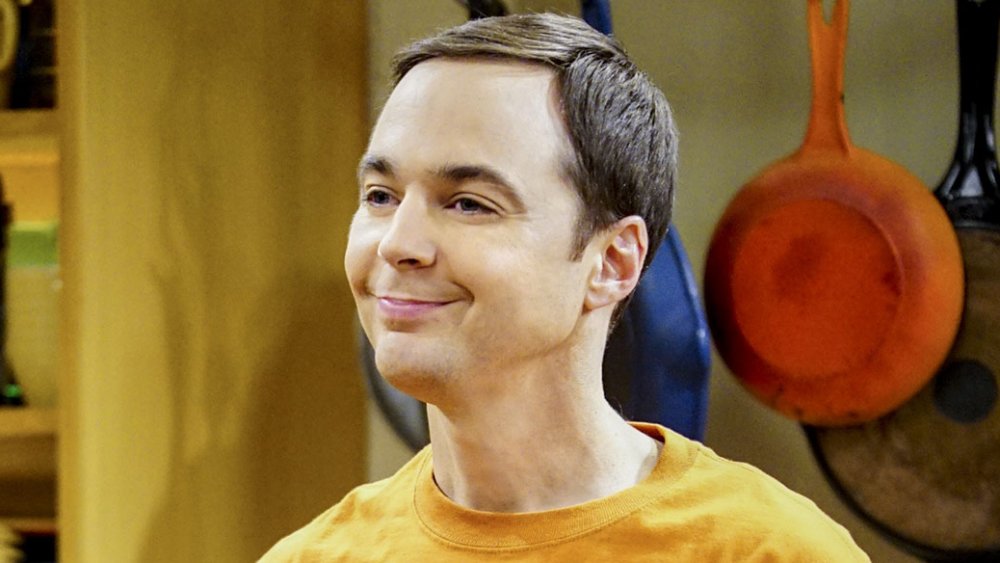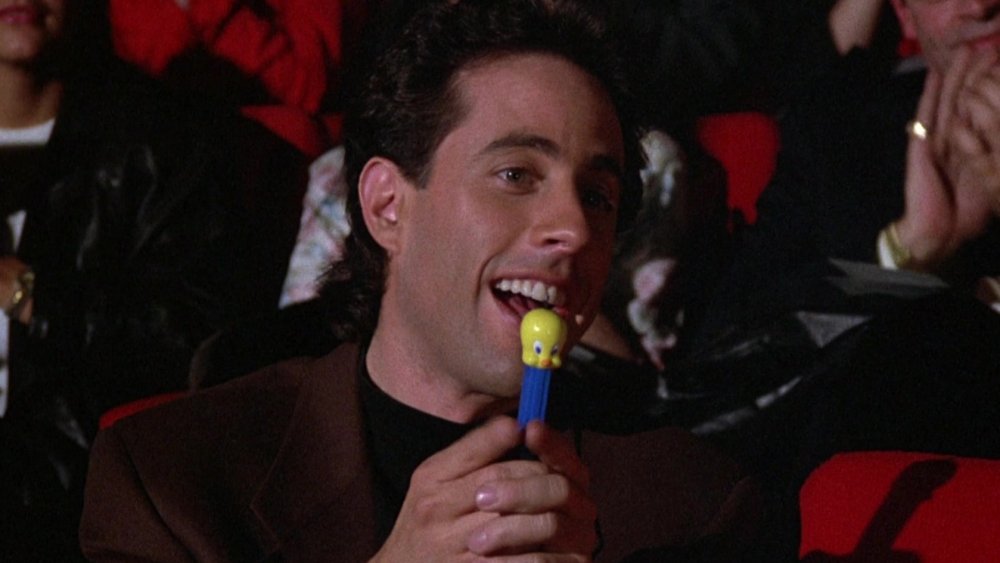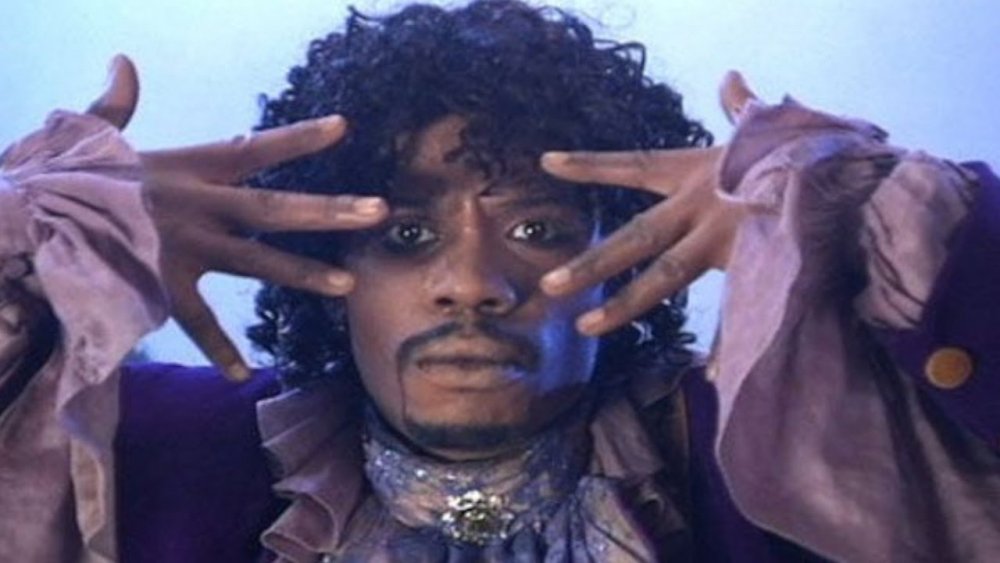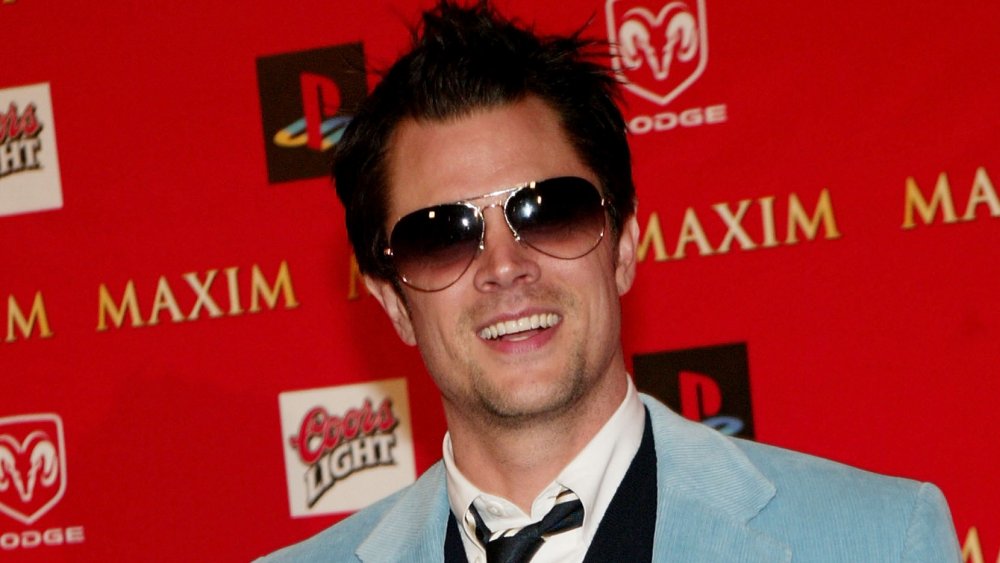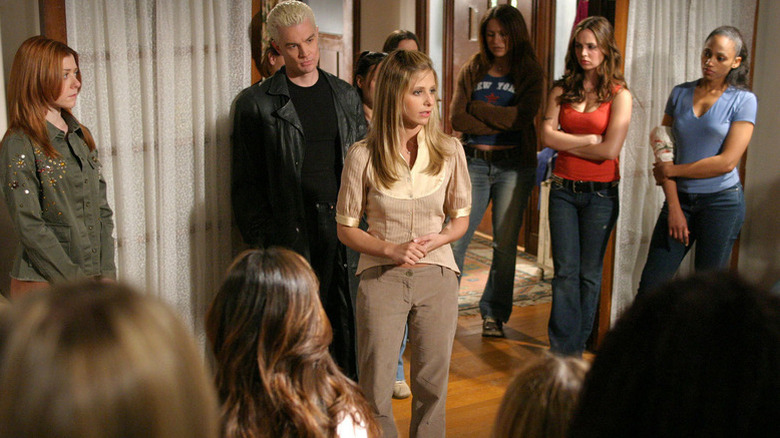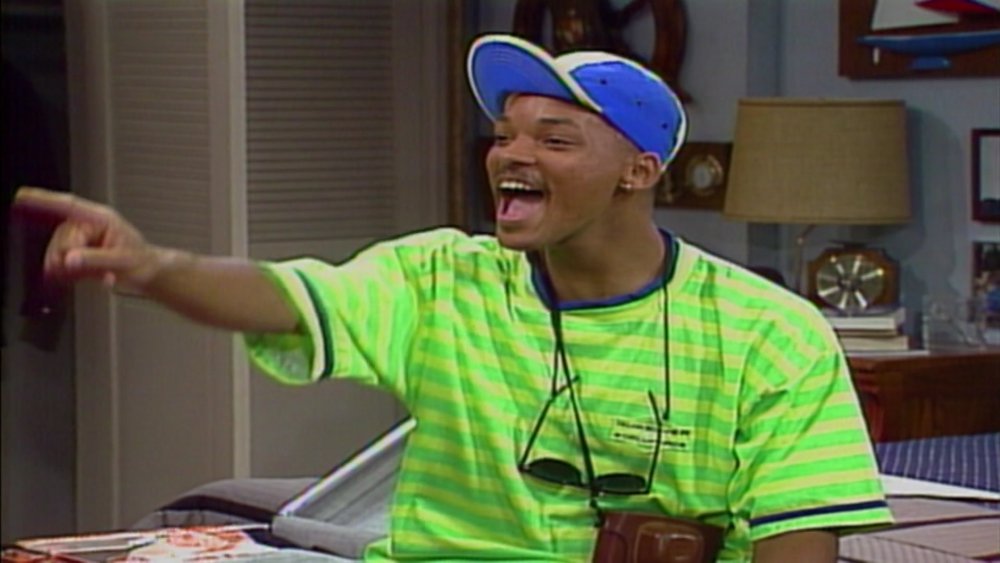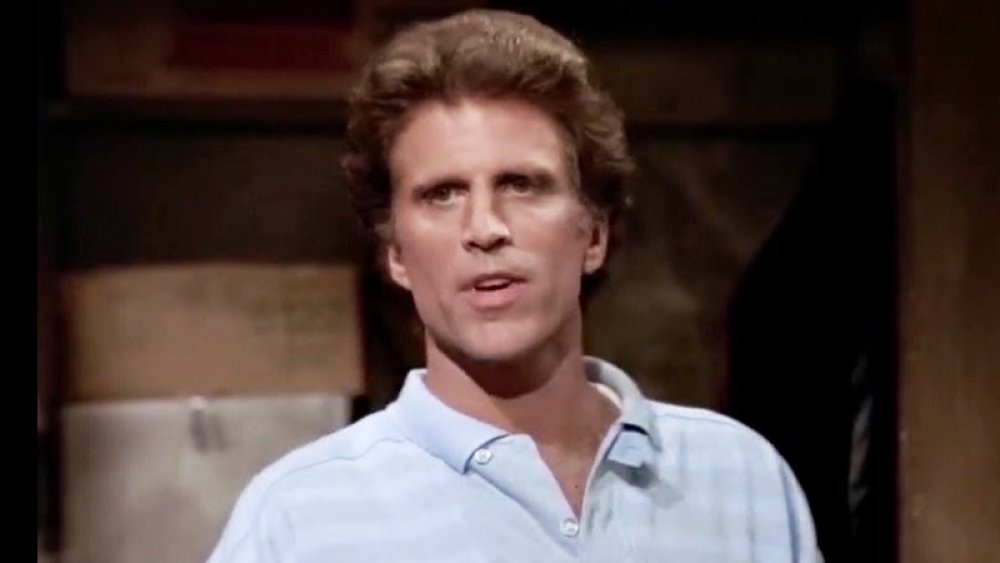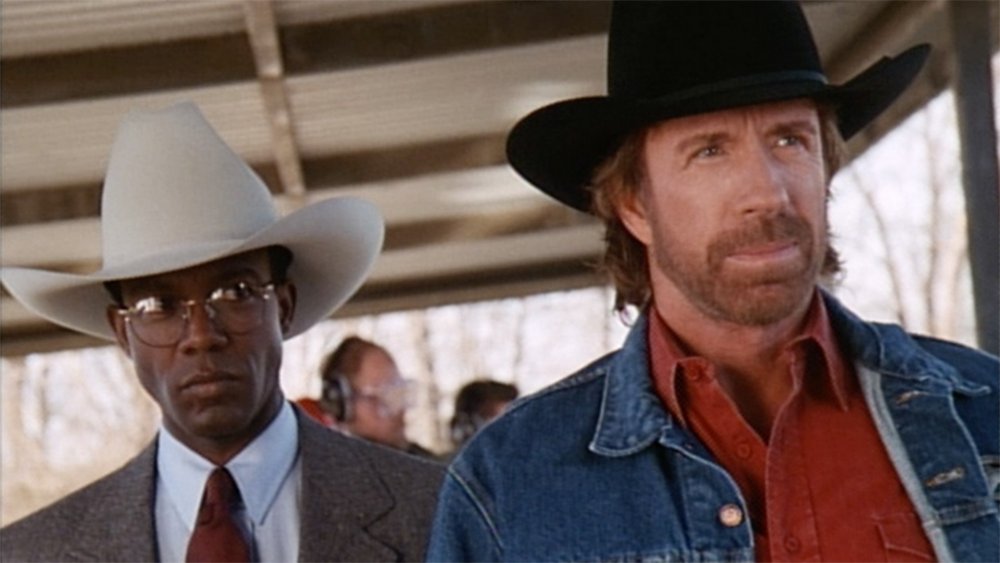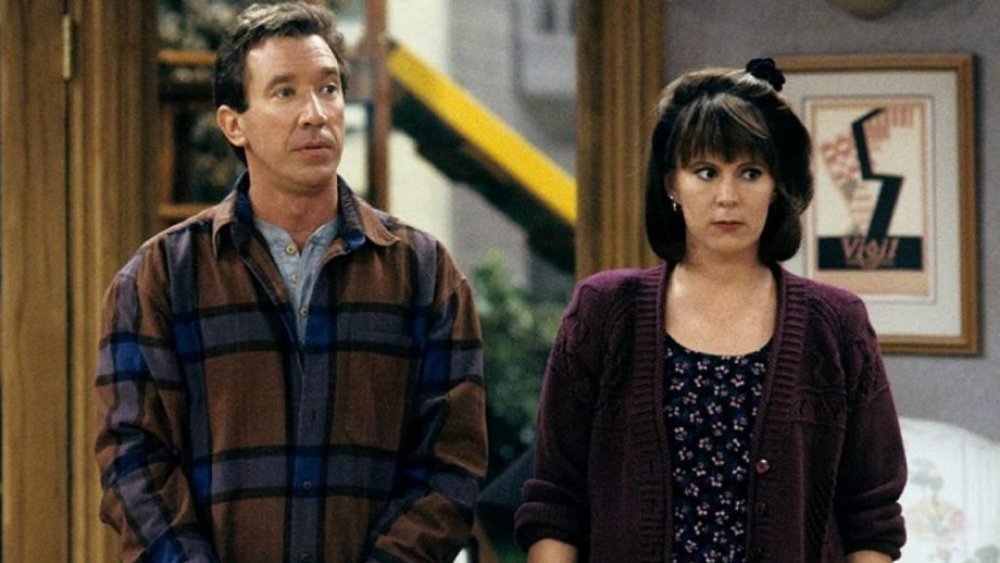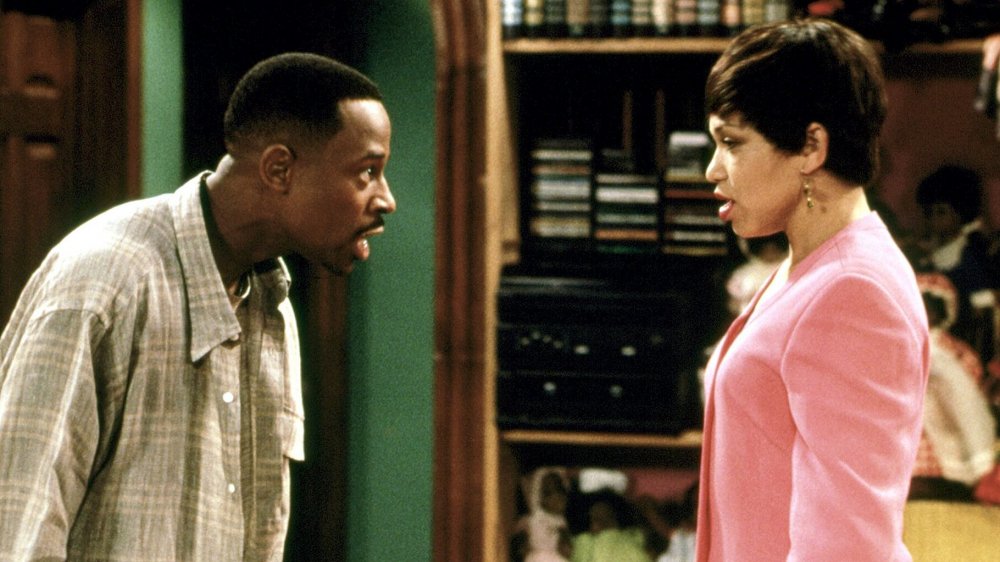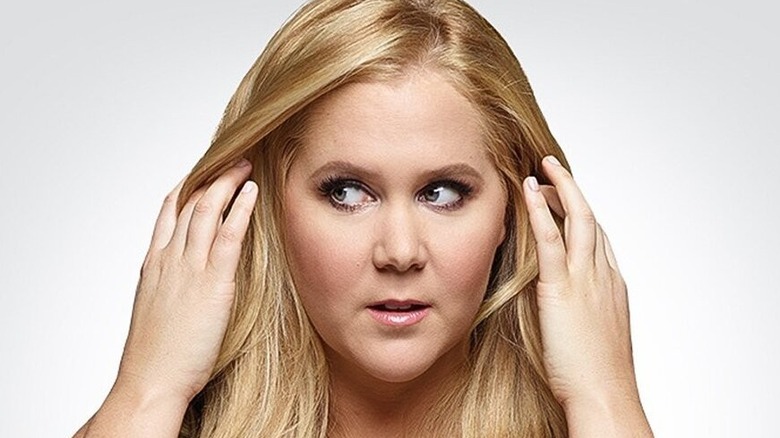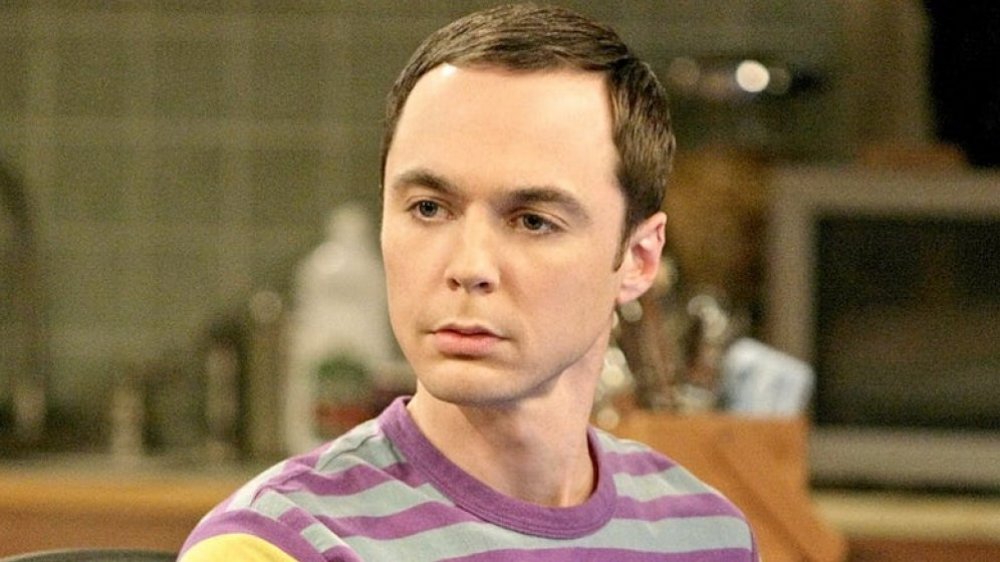TV Shows That Ended Because The Star Quit
Becoming the lead of a hit TV show has got to be a dream come true for an actor. After all, when the show winds up as a success and runs for years, it turns them into a gigantic star, opening all sorts of doors for them. Suddenly, they're awash in cash, getting paid millions of dollars each week, and securing their financial future just to show up, play a character, and be a part of a big TV series that lots of people enjoy.
But then, after some time, a harsh and confusing realization sets in — it becomes clear that it's time for them to walk away from this definitive creative project that elevated their lives and made them household names. There are a lot of reasons why an actor may choose to leave their television series. Perhaps the project has grown creatively bankrupt, or maybe there's an untenable work environment. However, there's an even more extreme situation, where an actor might walk away before producers or networks are ready for the series to end, forcing the creators to cancel the show because it would be pointless to continue without its big star. And this kind of thing happens more than you might think. From beloved sitcoms to classic horror, here are TV shows that ended because the star quit.
Seinfeld decided it was time to go
Seinfeld was the definitive sitcom of the '90s. An anchor of NBC's "Must See TV" lineup of very popular shows (which also included Friends and ER), it was the #1 series on TV by 1995. Seinfeld was also revolutionary. Operating on a "no hugs, no learning" dictum created by creators Larry David and Jerry Seinfeld, the show claimed to be about "nothing," but it was actually about four cynical, self-absorbed, non-sympathetic New Yorkers as they navigated life in intricately written, interconnected adventures each week — a world away from the treacly family sitcoms of the '80s.
Seinfeld ran its course after nine seasons in 1998, but NBC certainly didn't cancel Seinfeld. In late 1997, according to a network official who spoke to The New York Times, executives offered Seinfeld around $5 million an episode for a proposed tenth season, which would've easily made him the highest-paid actor on TV, and it was still a bargain for NBC, which earned around $200 million in annual profits from the hit comedy. But at that point, Seinfeld had earned so much money from the show that he could afford to end it when he felt like it. "I wanted the end to be from a point of strength," Seinfeld said, before adding, "For me, this is all about timing. My life is all about timing. As a comedian, my sense of timing is everything."
Chappelle's Show ended after the comedian got uncomfortable
Upon its premiere in 2002, Chappelle's Show, starring and led by stand-up comedian Dave Chappelle, was instantly one of the hottest and most vital shows on TV, offering cutting satire, insightful commentary on race relations, and hilariously memorable characters. (Some of the show's classic characters, all portrayed by Chappelle, included an unhinged Rick James, a basketball-playing Prince, and high-voiced crack enthusiast Tyrone Biggums.) The sketch show pulled in huge ratings and DVD sales for Comedy Central, which offered Chappelle $50 million to keep the Show on the air. But early in the production of season three, Chappelle turned away from the money and quit the series that bore his name and voice.
It was one sketch in particular — which later aired in a special episode hosted by Chappelle's Show cast members — that made Chappelle prematurely end the series. "Stereotype Pixies" featured tiny, conscience-like characters prodding people of different races to act in stereotypical ways. In the bit, Chappelle played himself on an airplane deciding on his in-flight meal while an African-American pixie (also portrayed by Chappelle) urged the selection of fried chicken. In portraying the pixie, Chappelle wore blackface and dressed and acted like a racist 19th-century depiction of a Black man. When Chappelle was taping the sketch, he heard a white audience member laugh. "It made me uncomfortable," he told Time.
Jackass ended when its star called it quits
In its quest to produce edgy programming that its target audience of cool, hard-to-please young people will enjoy, MTV has often scandalized the nation with its controversial programming options, such as Skins, Beavis and Butt-Head, and of course, Jackass. That particular series, an outgrowth of raucous skate magazine videos, consisted of elaborate, cheeky, and usually dangerous stunts performed by charismatic young guys who seemed to lack any sense of self-preservation. Those individuals — Johnny Knoxville, Bam Margera, Steve-O, and the rest of the Jackass crew — became stars virtually overnight when Jackass hit MTV in October 2000.
In August 2001, and just before the airing of what was only Jackass's 24th episode, Knoxville told the Knoxville News-Sentinel (via the New York Post) that he'd quit the series, thereby self-canceling it. "We told [MTV] we would do specials down the road," Knoxville said. "But this is enough. We have done enough." The TV personality — who wanted to explore his burgeoning film acting career — said that MTV offered to make 22 more episodes of Jackass as a final offer but to no avail. At the time of its demise, Jackass was the most-watched show on MTV.
Sarah Michelle Gellar drove a stake through Buffy the Vampire Slayer
Buffy the Vampire Slayer was a wholly original series, combining threatening monsters, a deep and arcane mythology, soap opera elements, and teen drama (which allowed it to fit into The WB's youth-dominated '90s slate). To portray the titular Buffy — a regular California teen thrust into the role of protector of the world, as her town was built on a hellmouth — Sarah Michelle Gellar had to be adept at all those acting styles and more, especially since each episode featured extensive action sequences and stunt work, with Buffy fighting off numerous supernatural bad guys.
That all added up to a tremendous workload for Gellar, to the point where all those endless days and nights on the Buffy set negatively impacted her life. In 2003, she told Entertainment Weekly that the show was ending and that she was done with it. "Buffy, in this incarnation, is over," Gellar said. "I'm 26. I'm married. I never see my husband," she added (via Us Weekly). "You want to pick up and go, try other things, live in different places. It feels right, and you have to listen to that." As there could be no Buffy without Buffy, executives at the show's second home, UPN, did the sensible thing and had the original run of Buffy the Vampire Slayer wrapped up in the spring of 2003.
The Fresh Prince of Bel-Air wasn't fresh enough for Will Smith
Throughout the '80s, the Fresh Prince (better known now as Will Smith) made a name for himself — and helped bring rap into the mainstream — with amusing, humorous, and elaborate story-songs, such as "Parents Just Don't Understand," "A Nightmare on My Street," and "Girls Ain't Nothing but Trouble." Smith hammed it up with partner DJ Jazzy Jeff in the brightly colored, action-packed music videos that literally retold their associated songs, and so it was a natural fit when the sitcom The Fresh Prince of Bel-Air was built around him and became a hit upon its debut in 1990.
Smith initially took on the gig to quickly earn enough money to pay down a massive tax debt, but he turned out to have a real knack for acting as well as undeniable charisma. In May 1996, The Fresh Prince of Bel-Air ended its six-year run, mainly because its main performer was ready to move on to a movie career, as he'd had great success with 1995's Bad Boys and 1996's Independence Day looked to be a major blockbuster. "We felt like it was time," Smith told the Los Angeles Times. "We've all grown as actors and as people, we had an incredibly talented cast, but the show is just limiting."
Cheers closed down after Ted Danson quit
On May 20, 1993, about 100 million people watched the final episode of Cheers, which wrapped up 11 seasons of the Boston bar's run as one of the most successful and acclaimed sitcoms in TV history. And as one of the most watched shows on TV throughout the '80s and '90s, Cheers earned Emmy Award nominations for Outstanding Comedy Series and Outstanding Lead Actor in a Comedy Series for Ted Danson all 11 years it was on the air.
In early 1993, while the eleventh season of Cheers was in production and airing weekly, planning for a twelfth season began, as producing studio Paramount had signed a contract to make another batch of episodes for NBC. According to The New York Times, that's when Danson, at the time the highest-paid actor on TV with a $450,000-per-episode salary, decided it was time to walk away. His personal life was in disarray after the breakup of his marriage and a subsequent, tabloid-baiting relationship with Whoopi Goldberg. "I need the lack of safety this show gives me," Danson said. "I need to be shook up a little bit."
Cheers could feasibly have continued without Danson — it successfully weathered the departure of star Shelley Long in 1987 and boasted one of the most robust ensemble casts in TV history — but it wouldn't have made economic sense. The syndication deal for Cheers reruns contained a quirky clause. Stations only had to buy future episodes of Cheers if Danson was in them.
Chuck Norris walked away from Walker, Texas Ranger
Walker, Texas Ranger was truly a one-of-a-kind entertainment bonanza. Starting in 1993, Chuck Norris, star of '80s action movies and martial arts movies, took his unique skill set — playing a stoic good guy who pursued and punished bad guys by kicking them and punching them in low-angled camera shots — to television. With Norris as violent lawman Cordell Walker (and the singer of its theme song), Walker, Texas Ranger became a Saturday night staple for CBS, and it often ranked among the top 30 most watched shows on TV.
After eight years of casual violence and squinting in a cowboy hat, Chuck Norris decided that it was time to walk on past Walker. Seeing as how he was the show's star and one of its leaders, whatever he said was what happened. "Being the executive producer and the lead doesn't give you much time for a life," Norris told the Los Angeles Times In January 2001. "You always want to try to quit as a winner." However, Walker wasn't on the trajectory of a winner. Viewership had dropped from 14 million to 10 million over the previous two years, and it finished the 2000-2001 season at #68 in the Nielsen ratings. Had it continued to air and lose eyeballs, CBS probably would've kicked Walker to the ground before too long.
Home Improvement lost its two leads
Among the many stand-up comedians who translated their unique stage acts into '80s and '90s sitcoms (Roseanne Barr, Brett Butler, Jerry Seinfeld), few were as wildly successful at it as Tim Allen. The comedian's routines both celebrated and mocked manliness, particularly how guys — with their base instincts, basic needs and thoughts, and love of grunting — had a hard time fitting into the modern, civilized duties of husbands and fathers. That easily became Home Improvement, in which Allen starred as the host of a home improvement show who struggles to be a good husband and father. The show was wildly popular, and by its third season in 1993-94, it was the #1 show on TV.
In its eighth season, Home Improvement started to slip in the ratings, but it was still a top ten show and enough of a hit that ABC wanted another season and was willing to pay a great deal of money for it. Tim Allen was offered $50 million to continue, and co-star Patricia Richardson entertained a deal worth $25 million. But both performers opted to quit and leave all that money on the table. "I couldn't have gone on because it would've been about the wrong reasons," Allen told Biography. Richardson added that the show was running thin on story material, and all that money couldn't get her to say. "I already made a lot of money from Home Improvement," she said.
Martin Lawrence quit his show in the middle of controversy
The 1992-1997 Fox sitcom Martin was a vehicle for comedian Martin Lawrence, who played Martin Payne, a DJ for Detroit radio station WZUP who deeply loved his partner Gina (Tisha Campbell), although he frequently almost blew it with her because of his mutual animosity with her best friend, Pam (Tichina Arnold). But behind the scenes, according to People, Lawrence had a tumultuous 1996 and 1997. He was arrested for a nightclub assault, was spotted wandering disoriented through traffic, and was accused by his wife of violent and threatening behavior. When Campbell found out about that, she quit Martin, but producers legally forced her to stay. She countersued, alleging that Lawrence committed "repeated and escalating" acts of sexual harassment. Campbell didn't appear in ten episodes of the 1996-97 season and returned after the suit was settled, which included the stipulation that Campbell would only tape scenes if Lawrence wasn't on set.
Around that time, Lawrence released a statement affecting the future of Martin, saying he wanted to "take some time off ... and then concentrate all my efforts on [his] film career," as he'd signed a three-movie deal with Columbia Pictures. Whether it was his really because of his personal issues, Campbell's lawsuit, or the lure of film, Lawrence told GQ in 2020 that Martin ended because he quit Martin. "It just was time to end," he said, calling that suit "a lot of b*******" about "something that just didn't happen." And so, he "just decided to end it."
Inside Amy Schumer ended in 2016 ... sort of
Inside Amy Schumer was the first time in more than a decade, since the premature demise of Chappelle's Show, that Comedy Central had a hot sketch show built around the hottest comic voice of the moment. Popular and controversial comedian Amy Schumer led the cast and shaped the show, which often skewered gender politics, systemic sexism, and double standards faced by women in the 21st century.
However, Comedy Central hasn't aired a new episode of Inside Amy Schumer since its fourth episode finale in June 2016, but the network never officially killed it. Technically, the show just hasn't produced any new episodes for many years now, and that's because its star and the person it was built around didn't want to make them, at least for a while. "Inside Amy Schumer is not canceled," Schumer tweeted (via Deadline) in August 2016. "Comedy Central has provided us with a wonderful home, and we couldn't be happier there. I am just touring, doing stand-up, and focusing on writing more for the next year at least." She added that a fifth season was "slated" but not for any time "in the foreseeable future."
The Big Bang Theory fizzled out when Jim Parsons left
Jim Parsons began portraying annoying mega-genius Sheldon Cooper on The Big Bang Theory in 2007, and the role would win him four Emmy Awards and also make him extremely wealthy. In 2017, Forbes reported that he earned $27.5 million a year, the majority of that coming from his $1 million-per-episode salary, which the market justified because The Big Bang Theory was by far the most-watched sitcom on network TV.
Contracted to make episodes of the series through its twelfth season in 2018-19, Parsons entered negotiations with CBS in 2018 to discuss seasons #13 and #14. Offered an astounding $50 million to keep pretending to be a scientist while wearing superhero T-shirts, Parsons said no thanks. "It felt like we have been able to do this for so many years now, it doesn't feel like there is anything left on the table," the actor later told Entertainment Weekly, adding, "It feels like we've chewed all the meat off this bone.
According to Deadline, Parsons told Big Bang co-creator and executive producer Chuck Lorre that he planned to leave the show. After a table read of an upcoming episode, Lorre asked the core cast to meet him in his office, which is where he let Parsons tearfully announce that he planned to leave the series at the end of the season. And then Lorre said that he wouldn't want to do the show without Parsons (or Sheldon), and so he would be ending the series entirely.
